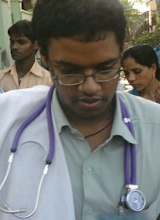Many parents experience depression during the first 12 years of their children's lives and the risk is highest during the first year after birth, a new study has found.
Researchers in the United Kingdom examined data from 86,957 families seen in primary-care clinics between 1993 and 2007 in order to identify parents with depression. They found that more than one-third of mothers and about one-fifth of fathers had an episode of depression between their child's birth and their 12th birthday -- 19,286 mothers had a total of 25,176 episodes of depression and 8,012 fathers had a total of 9,683 episodes of depression.
Overall, the depression rates were 7.53 per 100 mothers and 2.69 per 100 fathers per year. But the rates during the first year after the birth of a child were 13.93 per 100 mothers and 3.56 per 100 fathers.
"These high rates of depression in the postpartum period are not surprising owing to the potential stress associated with the birth of a baby, [for example,] poor parental sleep, the demands made on parents and the change in their responsibilities, and the pressure this could place on the couple's relationship," wrote Shreya Dave, of the Medical Research Council in London, and colleagues.
Depression was most likely to occur in parents with a history of depression, those who were aged 15 to 24 when their child was born, and those who were more socially deprived, according to the report, which was released online Sept. 6 in advance of publication in the November print issue of the journal Archives of Pediatrics & Adolescent Medicine.
"There is a well-established link between depression and social and economic deprivation both in the general population and among parents. This finding may reflect the stresses of poverty, unemployment, low employment grade and lower social support among people of lower socioeconomic status," the researchers concluded.
In addition, "younger parents may be less prepared for parenthood with more unplanned pregnancies and may be less able to deal with the stresses of parenthood compared with older parents," Dave and colleagues wrote.
SOURCE: JAMA/Archives journals, news release, Sept. 6, 2010
WELCOME TO THE NEW RANGARAYAN BLOG
PLEASE FEEL FREE TO GIVE IN YOUR VIEWS AND COMMENTS
NEW ANNOUNCEMENT
SPREE 2012 UPDATES- CLICK HERE
welcoming the new a...

0 comments:
Post a Comment